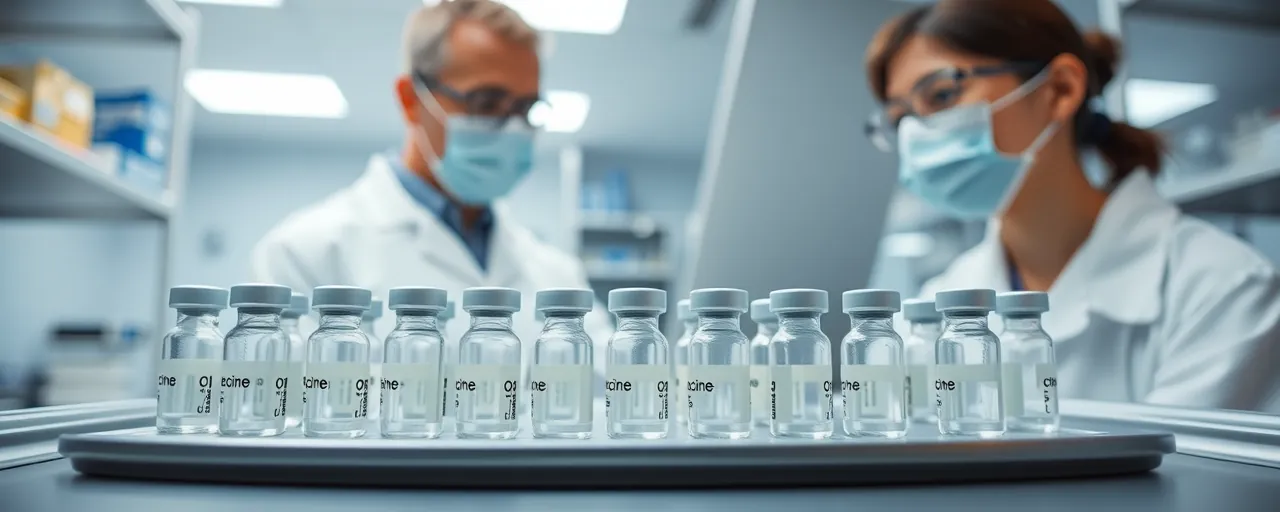A Virus That Won’t Quit
When the NB.1.8.1 COVID variant surfaced in travelers at U.S. airports in spring 2025, it felt like a jolt from a persistent nightmare. Tied to a surge in China, this variant landed in states from California to New York, a stark reminder that the pandemic still lurks. For those who value collective action, this moment screams for bold steps, not cautious half-measures. How long will we let global travel, capable of spreading pathogens in hours, outpace our response?
The Centers for Disease Control and Prevention’s screening caught NB.1.8.1 at major hubs, while community cases emerged in Ohio, Rhode Island, and Hawaii. The Food and Drug Administration’s call for a 2025-26 vaccine targeting the JN.1 lineage, which includes this variant, marks progress. Yet, one question burns: are we truly prepared to shield the vulnerable and prevent another crippling wave?
Public Health Demands Leadership
Advocates for strong public health systems have consistently pushed for decisive federal action. The CDC’s ramped-up genomic surveillance, wastewater monitoring, and mask advisories draw on decades of global influenza tracking, a legacy dating back to the 1950s. But gaps in testing and vaccine access for underserved communities threaten to unravel these efforts. Why do we accept a system where some are protected while others are left exposed?
The FDA’s choice to restrict fall boosters to those 65 and older or at high risk, while demanding placebo-controlled trials for wider use, sparks worry. This approach could leave younger adults and children defenseless, especially with NB.1.8.1’s potential for greater spread. Some defend this as respecting personal choice, but prioritizing individual freedom over shared safety dismisses the virus’s ability to strike anyone. The 2021 Delta wave proved that delayed action only deepens the toll.
Global Unity Is Essential
NB.1.8.1’s swift spread via air travel, mirroring the 2009 H1N1 pandemic, shows that borders mean little to a virus. Modern travel networks can carry pathogens globally in 36 hours, as seen with Omicron subvariants. The World Health Organization’s early warning systems and the new Pandemic Agreement offer a framework, but success hinges on nations sharing data and vaccines equitably. Why should wealthier countries stockpile doses while others struggle to respond?
Initiatives like COVAX, backed by global health leaders, aim to close this gap, yet inequities persist. The U.S. must champion genomic sequencing in low-income nations and fund surge testing. Those who prioritize national autonomy over cooperation miss the lesson of the 2003 SARS outbreak: going it alone delays containment, harming lives and economies alike.
The Real Costs of Inaction
Every COVID wave, from Alpha to Omicron, has left scars on society and the economy. The 2023-24 season saw $22.1 billion in U.S. hospitalization costs, with emergency rooms swamped by 20% spikes in visits. Long COVID drains productivity, and low vaccine uptake in marginalized communities deepens disparities. These aren’t just statistics; they’re families facing hardship and workers sidelined by illness.
Some, aligned with efforts like Project 2025, argue that measures like mask mandates or travel screening violate personal rights. But this view overlooks the wider damage of unchecked spread. The 1918 influenza pandemic showed that early, unified action saves lives and stabilizes economies. Safeguarding public health is a duty, not an overreach.
Time to Act Boldly
NB.1.8.1 is a call to action. We need vaccines for all, restored funding for free testing, and sustained measures like masking in crowded spaces. The FDA’s JN.1-focused vaccine is a step forward, but boosters must reach everyone, not just a select few. Global herd immunity depends on equitable vaccine distribution and international collaboration.
Those who favor individual choice may resist, but their approach risks prolonging this crisis. Science-driven policies—surveillance, rapid vaccine updates, and global solidarity—have proven effective. The question now is whether we’ll rise to the challenge before another variant takes hold.
